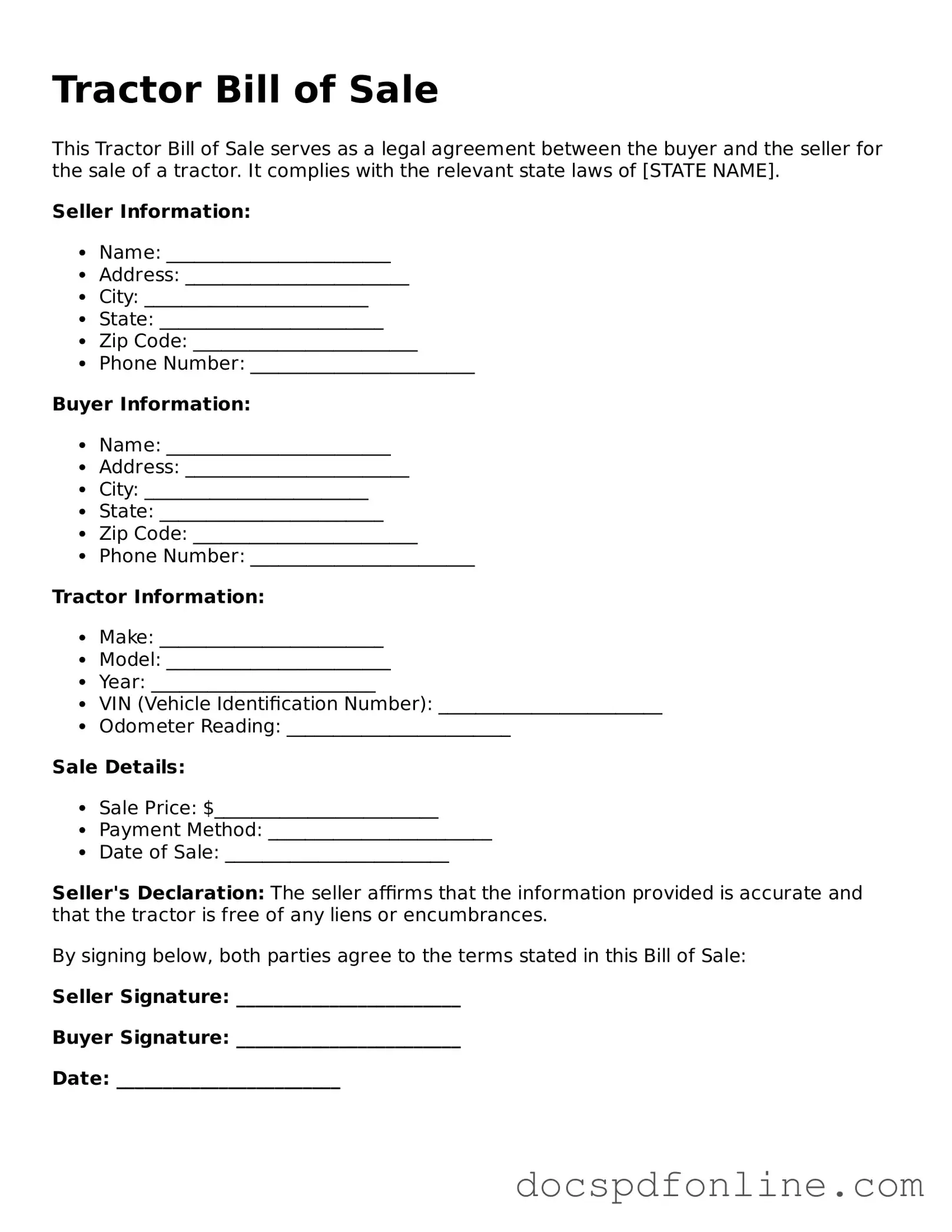Attorney-Approved Tractor Bill of Sale Document
A Tractor Bill of Sale is a legal document that outlines the sale of a tractor from one party to another. This form serves as proof of the transaction, detailing important information such as the buyer and seller's names, the tractor's description, and the sale price. Having a properly completed bill of sale can help protect both parties in the event of future disputes.
Launch Editor Now

Attorney-Approved Tractor Bill of Sale Document
Launch Editor Now
Save time — finish this form fast
Finish Tractor Bill of Sale online — edit, save, download made easy.
Launch Editor Now
or
↓ PDF File
